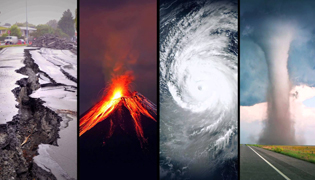 How do we build resilience to natural disasters, and how do we educate people, particularly in vulnerable communities, to cope in an emergency?
How do we build resilience to natural disasters, and how do we educate people, particularly in vulnerable communities, to cope in an emergency?
Research has a very important role in helping to better understand the impact of a devastating natural disaster like an earthquake, particularly on vulnerable groups like the disabled, aged or migrants.
Five years on from the Christchurch earthquake, now is the time for research to underpin policy that will equip people for future natural disasters, and help with recovery.
University of Otago Business School is studying how migrant communities get information, and where they get their support. Economics researcher Dr Arlene Ozanne is surveying migrants from the Philippines living in Christchurch, asking what they needed in the earthquake, how they found it, and what would be useful to know.
Non-English speakers are known to be shy to ask for assistance, and often don't know where to find it. For instance, New Zealand Civil Defence emergency information is published in the phone book, but Dr Ozanne asks if this is the proper medium, given many migrants and tourists don't know it's there and it is only in English. “It's timely to re-examine what communication channels work now.”
Dr Ozanne is comparing Christchurch data with Japan, which has had a long history in living with earthquakes. She's particularly interested in understanding how non-native residents are educated and find information on disaster coping mechanisms.
At the same time, her research is also comparing recovery efforts in Christchurch to those in Japan.
Dr Ozanne wants to better understand Japan's emphasis on quick recovery post-earthquake, which is thought to help both morale and its economy. The speed of the rebuild from Kobe's devastating 1995 earthquake, which killed over 6000 people, as well as the more recent Great East Japan Earthquake and Tsunami in 2011 are particularly interesting as people did everything possible to move forward – even accepting pay cuts.
It's interesting to compare this with the infrastructure and home repairs still needed in Christchurch five years on.
“It's clear Japan knows how to mobilise funds and people to manage its earthquakes, and we can learn from this. The longer recovery takes, the more desperate and vulnerable people become, and the more it affects the entire country, so it's important to draw on all available data to help guide the recovery process.”
Such research may not only assist on-going recovery for New Zealand, but also for other countries often hit by natural disasters.







